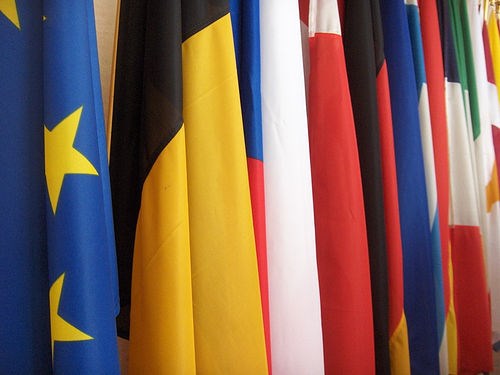EU study: Sport-related sectors worth up to €294 bn

27.11.2012
By Play the GameA newly released study looks into sport’s economic value in the EU and finds sport to be a growing economic and labour-intensive sector that has the potential to contribute to reducing economic imbalances between member states.
The study has been carried out by the Austrian Institute for Sports Economics (SpEA) and aims to assess the macroeconomic importance of the sport sector in all 27 seven member states with a special focus on the growth and employment potential in order to incorporate the findings in ‘Europe 2020’, which is the EU’s growth strategy for the coming decade.
A special methodology has been developed to analyse sport’s value on both national level and on an overall EU level and the study concludes that sport is a considerable economic sector and that its share in the national EU economies is comparable to that of agriculture, forestry and fishing combined.
The study shows that the share of sport-related gross value added of total EU gross value added is 1.76% for the broad definition of sport, which includes all goods and services related to sports activity. This is six times as high as the share of what is generally known as the organised sport sector (sport clubs, public sport venues, sport event organisers). On top of that, the study estimates the direct value of the sport sector combined with the indirect and induced effects to be €294.36 bn or 2.98 % of EU Gross Value Added.
The number of sports related jobs grows
Another conclusion drawn from the study is that sport represents a labour-intensive growth industry, meaning that the industry is likely to lead to additional employment. The current assessment of the direct effects of the sports related jobs amounts to 2.12 % of the total EU employment or 3.51 % if the indirect effects are counted in.
According to the report, sport has an ‘income elasticity above 1’, which means that the demand for sport related production and services will increase more than proportionally as income rises.
On this basis the study foresees a faster growth of the sector in lower income countries than in higher income countries This could help reduce economic imbalances and contribute to economic convergence of member states, the study finds.
Finally the reports also sees sport as spreading through to other sectors such as tourism, education and professional sports betting and the study recommends further identification of these niche sectors as a way of enhancing sport’s contribution to the European 2020 Strategy.
As a summary of the most important findings, the report lists the following four ‘policy implications’:
1. Sport is an important economic sector
2. Sport represents a labour-intensive growth industry
3. Sport can foster convergence across EU member states
4. Sport has growth-enhancing specialisation advantages The study was commisioned by the European Commission, Directorate-General Education and Culture.
Download the entire study:
Study on the Contribution of Sport to Economic Growth and Employment in the EU EU news article about the study





